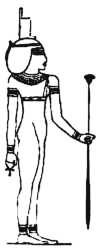The history of Mother’s Day is centuries old and the earliest Mother’s Day Celebrations can be traced back to the Pagans spring celebrations honoring The Great Mother, and in ancient Greece in honor of Rhea, the Mother of the Gods.
Mother’s Day History
Spiritual Origin
The majority of countries that celebrate Mother’s Day do so on the second Sunday of May. On this day, it is common for Mothers to be lavished with presents and special attention from their families, friends and loved ones. But it hasn’t always been this way.
Only recently dubbed “Mother’s Day,” the highly traditional practice of honoring of Motherhood is rooted in antiquity, and past rites typically had strong symbolic and spiritual overtones; societies tended to celebrate Goddesses and symbols rather than actual Mothers. In fact, the personal, human touch to Mother’s Day is a relatively new phenomenon. The maternal objects of adoration ranged from mythological female deities to the Christian Church itself. Only in the past few centuries did celebrations of Motherhood develop a decidedly human focus.
Goddess Isis – Early Egyptian Roots
 One of the earliest historical records of a society celebrating a Mother deity can be found among the ancient Egyptians, who held an annual festival to honor the goddess Isis, who was commonly regarded as the Mother of the pharaohs. Her stern, yet handsome head is typically crowned by a pair of bull horns enclosing a fiery sun orb. She is most often depicted sitting on a throne.
One of the earliest historical records of a society celebrating a Mother deity can be found among the ancient Egyptians, who held an annual festival to honor the goddess Isis, who was commonly regarded as the Mother of the pharaohs. Her stern, yet handsome head is typically crowned by a pair of bull horns enclosing a fiery sun orb. She is most often depicted sitting on a throne.
So the story goes, after Isis’ brother-husband Osiris was slain and dismembered in 13 pieces by their jealous brother Seth, Isis re-assembled Osiris’ body and used it to impregnate herself. She then gave birth to Horus, whom she was forced to hide amongst the reeds lest he be slaughtered by Seth. Horus grew up and defeated Seth, and then became the first ruler of a unified Egypt. Thus Isis earned her stature as the Mother of the pharaohs.
It is interesting to note that the Mother and Son imagery of Isis and Horus—in which Isis cradles and suckles her son—is strikingly similar to that of the Virgin Mary and baby Jesus.
Cybele – Ancient Roman Celebration
The festival of Isis was also celebrated by the Romans who used the event to commemorate an important battle and mark the beginning of Winter. Despite being an imported deity, Isis held a place at the Roman temple, and her festival—which lasted for three days—was regaled by mostly-female dancers, musicians and singers.
Yet the Roman root of Mother’s Day is perhaps more precisely found in the celebration of the Phrygian goddess Cybele, or Magna Mater (Great Mother).
Cybele stems from the Greek Goddess Rhea, who was the Mother of most of the major deities including Zeus. Rhea was therefore celebrated as a mother goddess, and the festival took place around the time of the Vernal Equinox.
Greek Celebration of Rhea, the Mother of the Gods Mother goddess
In Rome and Asia Minor, Cybele was the major Mother deity most similar to Rhea, the Greek mother of the Gods. Other societies worshipped similar deities including Gaia the Earth Goddess and Meter oreie the Mountain Mother. In many aspects, this Mother goddess was represented and celebrated similarly across cultures.
The Anatolian mother goddess festivals, however, were said to be so wild that they were eventually discouraged or banned. But more conservative celebrations of Cybele and her equivalents included eating honey cakes and sharing flowers in the morning. This was practiced throughout Asia Minor—and eventually in Rome.
The Roman celebration of Magna Mater fell between March 15 and March 22, just around the same time as the Greek festival in honor of Rhea. Referred to as Hilaria, games were held in honor of the Mother of the gods. Also customary was a procession through the streets with a statue of the goddess carried at the head, followed by a display of elaborate arts and crafts.